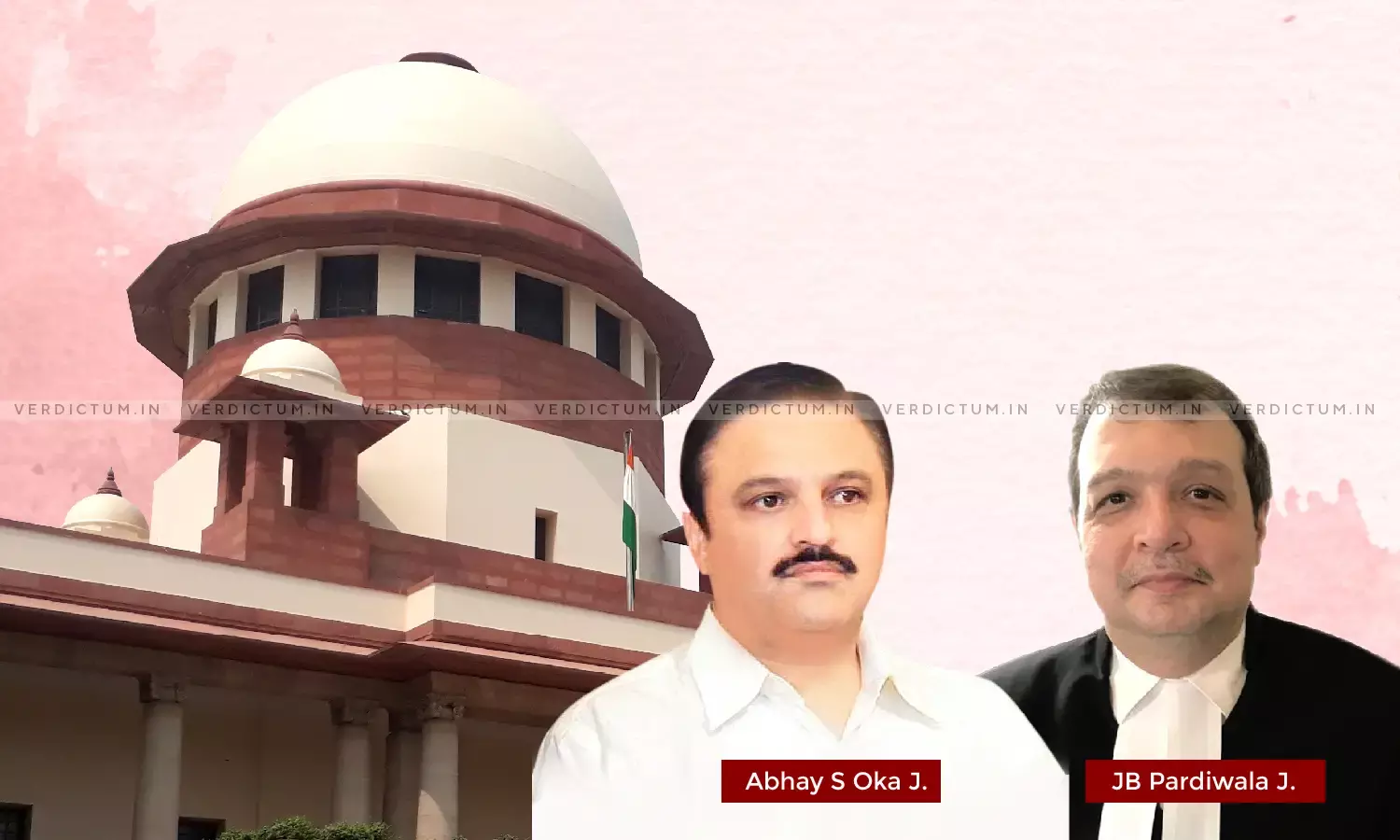Once Lumpsum Is Charged And Paid For Sale Of CD, Service Tax Cannot Be Levied Again On Updates - Supreme Court

The Supreme Court bench of Justice Abhay S Oka and Justice JB Pardiwala has dismissed the appeal filed by the Commissioner of Service Tax, Delhi seeking payment of service tax from Quick Heal Technologies Ltd. on the consideration received for the supply of the license codes/keys of Antivirus Software to the end customers in retail packs during the period between 2011-14.
The Court referring to its judgment in the case of Bharat Sanchar Nigam Ltd. v. Union of India held thus "Once a lumpsum has been charged for the sale of CD (as in the case on hand) and sale tax has been paid thereon, the revenue thereafter cannot levy service tax on the entire sale consideration once again on the ground that the updates are being provided."
In this case, an inquiry was initiated against the assessee-Quick Heal Technologies following which it was concluded that the assessee had failed to pay the service tax on the consideration received for the supply of the license codes/keys of Antivirus Software to the endcustomers in retail packs during the period between 2011 and 2014.
The Additional Director General (Adjudication), Delhi, confirmed the demand of service tax amount to Rs. 56,07,05,595/ alleged to have been not paid by the assessee.
Aggrieved, the assessee preferred an appeal against this decision before the Tribunal.
The Tribunal allowed the appeal filed by the assessee. Thereafter the revenue-Commissioner of Service Tax, being dissatisfied with the decision approached the Apex Court.
Senior Advocate Arvind P. Datar appeared for the assessee whereas Advocate Mukesh Kumar Maroria appeared for the Revenue.
The Court placed reliance on its judgment in Tata Consultancy Services v. State of Andhra Pradesh where the Court had held that in India the test to determine whether a property is "goods", for the purpose of sales tax, is not confined to whether the goods are tangible or intangible or incorporeal. It was held that the correct test would be to determine whether an item is capable of abstraction, consumption and use and whether it can be transmitted, transferred, delivered, stored, possessed, etc.
From the judicial decisions, the Court laid down the settled essential requirement of a transaction for the transfer of the right to use the goods-
• it is not the transfer of the property in goods, but it is the right to use the property in goods;
• Article 366(29A)(d) read with the latter part of the clause (29A) which uses the words, "and such transfer, delivery or supply"… would indicate that the tax is not on the delivery of the goods used, but on the transfer of the right to use goods regardless of when or whether the goods are delivered for use subject to the condition that the goods should be in existence for use;
• in the transaction for the transfer of the right to use goods, delivery of the goods is not a condition precedent, but the delivery of goods may be one of the elements of the transaction;
• the effective or general control does not mean always physical control and, even if the manner, method, modalities and the time of the use of goods is decided by the lessee or the customer, it would be under the effective or general control over the goods
• the approvals, concessions, licences and permits in relation to goods would also be available to the user of goods, even if such licences or permits are in the name of owner (transferor) of the goods, and
• during the period of contract exclusive right to use goods along with permits, licenses, etc., vests in the lessee.
The Court observed that the substance of the ratio of the case of BSNL (supra) is that the contract cannot be vivisected or split into two. The Court opined that when a lumpsum amount has been charged and the sale tax has been paid already, then the revenue can't levy service tax on the entire sale consideration once again on the ground that the updates are being provided.
"We are of the view that the artificial segregation of the transaction, as in the case on hand, into two parts is not tenable in law. It is, in substance, one transaction of sale of software and once it is accepted that the software put in the CD is "goods", then there cannot be any separate service element in the transaction. We are saying so because even otherwise the user is put in possession and full control of the software. It amounts to "deemed sale" which would not attract service tax.", the Court held while upholding the Order of the Tribunal.
Cause title- Commissioner of Service Tax Delhi v. Quick Heal Technologies Limited
Click here to read/download the Judgment

